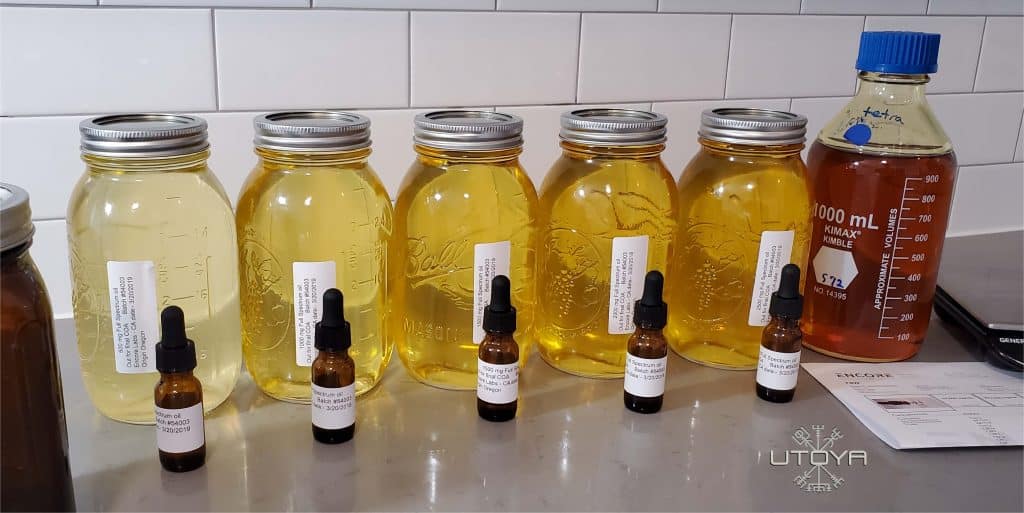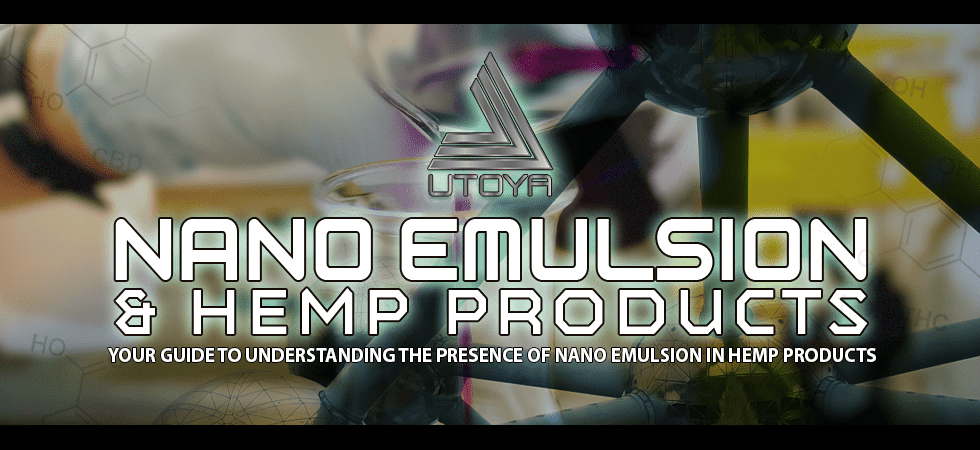Full Spectrum vs Broad Spectrum vs CBD Isolate
When shopping for CBD, you’ve probably come across products labeled as full spectrum, broad spectrum, or CBD isolate. While the three terms may sound similar, they are far from the same.
So, what do they mean and how are they different? In a nutshell, they are used to define which type of CBD is used in a product. Each type presents important factors to consider, and understanding the difference is essential for every CBD user.
In this article, we’re going to shed some light on this important subject by explaining that difference and discussing the advantages and disadvantages of each. Let’s start by discussing the factor that defines each type of CBD — cannabinoids.
What Are Cannabinoids, and Why Do They Matter
Within the Cannabis plant, there is a classification of compounds known as cannabinoids. Among these are CBD and THC, along with over a hundred others which scientists have discovered naturally occurring within different Cannabis strains.
Now, here’s why these are super important: In 1995, researchers discovered that, by interacting with receptors in the human Endocannabinoid System (ECS), cannabinoids like CBD could deliver unique health benefits to the body.
Later, they discovered that each cannabinoid could affect the body differently. For example, while THC delivers the psychoactive effects associated with “getting high,” CBD does not. In fact, CBD can actually counteract the psychoactive effects of THC. With various ranges of effects delivered by other cannabinoids like Cannabigerol (CBG) and Cannabinol (CBN), the full collection of cannabinoids forms what is referred to as the “cannabinoid spectrum.”
Full Spectrum CBD Nano amplified
Exploring the Cannabinoid Spectrum
As you’ve probably figured out, the cannabinoid spectrum range contained within a product is what determines whether the product is full spectrum, broad spectrum, or CBD isolate.
So, how does that work exactly? To create a CBD product, th the cannabinoid content is extracted from the Cannabis plant, using methods such as CO2 extraction. During this process, other compounds found within the plant are also extracted, including terpenes, flavonoids, and other cannabinoids.
Depending on the strain and classification used for extraction, the composition and cannabinoid profile will differ. For instance: Hemp, which is a classification of Cannabis Sativa, contains little to no THC, compared to the Cannabis Indica strain, Pennywise, which contains a 1:1 CBD to THC content ratio.
Depending on the purpose of the end-product, companies will choose to extract from a strain of Cannabis that best suits their needs. Once extracted, the company can then choose to refine the extract to contain only specific cannabinoids and plant pants.
The contents of the refined extract are what determines if the CBD extract is full spectrum, broad spectrum, or CBD isolate. Now let’s discuss what each term means and help point you in the direction of which is best for you.
What is CBD Isolate?
In scientific terms, an isolate is the purest form of a compound, which is produced by singularly extracting that compound from its environment and isolating it from all other compounds.
With that being said, CBD isolate is the purest form of CBD, which is produced by removing all other compounds found in the plant including terpenes, flavonoids, plant parts, and other cannabinoids. CBD Isolate is typically extracted from Hemp, due to its low to non-existent THC-content.
What is Full Spectrum CBD?
Full spectrum CBD is an extract that contains all compounds found naturally occurring in the plant, including terpenes, essential oils, and other cannabinoids. The full spectrum of cannabinoids, terpenes, and essential oils extracted from the plant work together to magnify the therapeutic benefits of each individual cannabinoid. This is commonly referred to as the “entourage effect“.
It was previously believed that CBD in its isolated from was more effective than Full Spectrum CBD; however, in 2005, this theory was debunked by a study from the Lautenberg Center for General Tumor Immunology in Jerusalem.
In the study, researchers found that test subjects administered with full spectrum CBD were provided with higher levels of relief, compared to subjects administered with CBD isolate. In addition, the results showed that full spectrum CBD provided enhanced effects with higher dosages, while the effects of CBD maintained consistent with increased dosages.
What is Broad Spectrum CBD?
Broad spectrum CBD is a bit of a mix between Full Spectrum CBD and CBD Isolate. Like Full Spectrum CBD, the other compounds found within the plant are preserved in the extract; however, like CBD Isolate, THC is completely removed. Because Broad Spectrum CBD contains multiple cannabinoids, it can deliver the enhanced benefits of the “entourage effect,” without the risk of failing a drug test or feeling any effects of THC.



